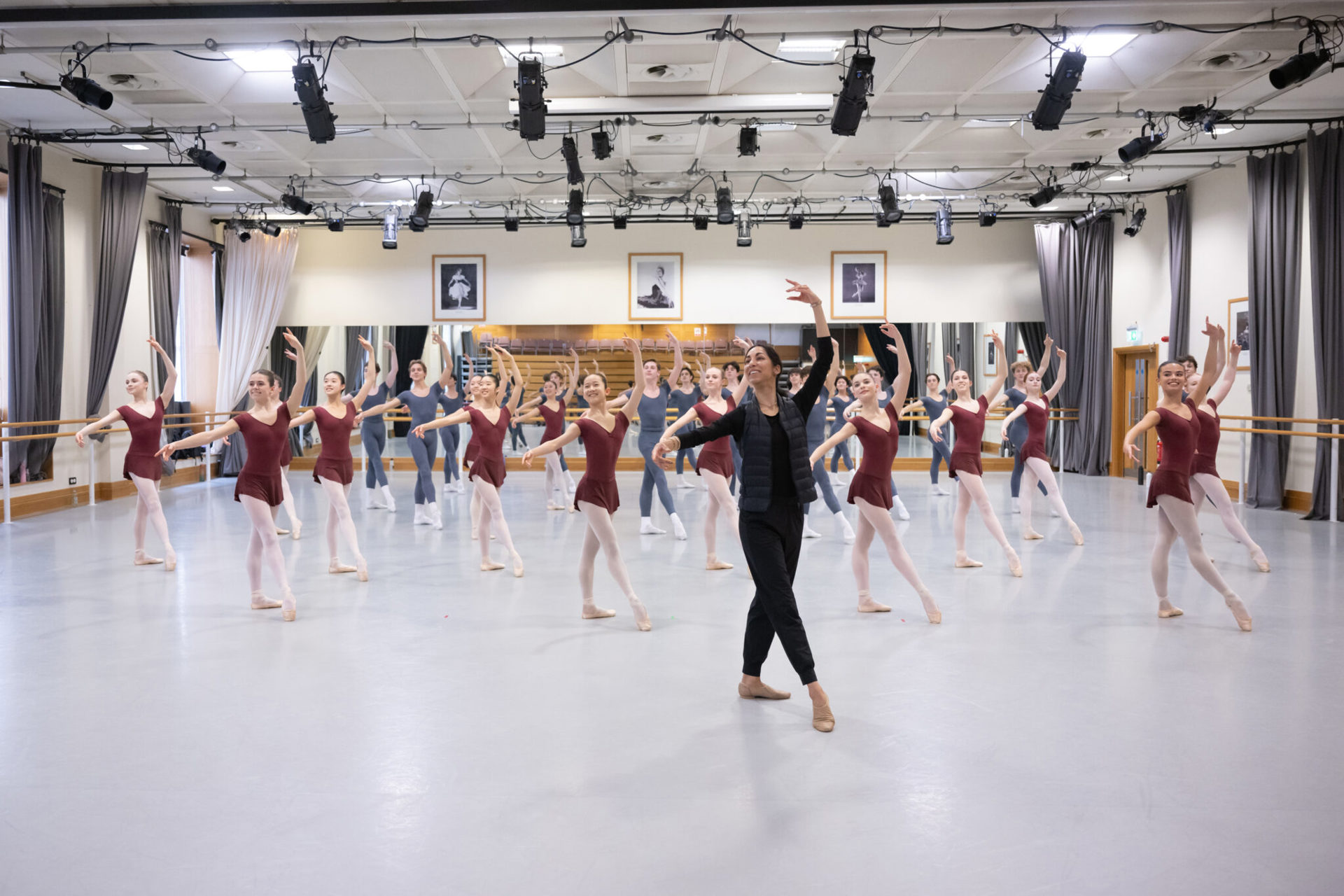NEWS
The Royal Ballet School announce future changes to entry into full-time training
The Royal Ballet School announce future changes to entry into full-time training
Share

The Royal Ballet School shares an important change to the way Year 7 and 8 students will be trained from 2026, with the introduction of enhanced national Associate centres and a new UK Scholars programme.
From September 2026, The Royal Ballet School will offer training to students of Year 7 age (11-12 years) in their national Associate centres, through their International Scholars programme, and through a new UK Scholars programme, rather than in a full-time vocational setting. This means there will be no Year 7 students taken into the School to train full-time or to board from September 2026. From September 2027, the School plans to extend this approach to students of Year 8 age (12-13 years).
The change builds on the School’s current approach to nurturing aspiring professional dancers in the most effective and supportive way. It is the result of careful reflection in a unique context and is informed by the latest research and guidance from experts across dance, sport science, education, healthcare, and safeguarding.
Over recent years, and more especially since September 2024, the School have been engaging with and participating in research on early specialisation in vocational dance training—that is, intensive, single-focus training from a young age. This process has included reflecting on their students’ needs and lived experiences, and consulting with senior teachers, Healthcare, Academic, Pastoral, Safeguarding and Teacher Training teams, and mental health specialists. The latest thinking from across the wider dance and sports sectors, which increasingly highlights the benefits of a more gradual, holistic approach to intensive training, has also been considered.
This process has led the School to conclude that, in this specific context, young dancers may benefit from more time to develop before entering full-time vocational training.
Importantly, this change will not reduce the number of students who train full-time at The Royal Ballet School. Full-time places previously allocated to Year 7 and 8 students will be redistributed across the older year groups, allowing the School to continue to offer the same number of training places overall, with increased flexibility to support students at the most appropriate stage in their development.
Iain Mackay, Artistic Director of The Royal Ballet School, said:
‘As one of the world’s leading ballet schools, we are committed to learning, reflecting on and evolving our training. We believe that our youngest students would benefit from a more gradual, diversified approach to their training. We are committed to balancing excellence with care and ensuring every child has the opportunity to thrive in pursuit of this wonderful, yet demanding art form. We know this is a big change. We take that very seriously and are focused only on delivering what is best for our students into the future.’
National Associate Programme and UK Scholars
From September 2026, in place of full-time Year 7 training, the School will roll out a new Mid Associate model across its growing network of national Associate centres. This model has already been trialled in the London centre and includes a specially developed ballet conditioning programme, repertoire weekends and bespoke development plans. The aim is for all centres to adopt this approach by the 2026/2027 academic year.
Alongside this, the School will introduce a UK Scholars programme for a selected number of exceptionally talented Year 7 students that would typically be at the level to enter the School full-time, identified through the Associate network. This national initiative will offer additional opportunities beyond Associate training, including performance experiences, attendance at residential camps and Intensives, tailored mentoring and structured engagement with parents and local teachers.
Together with the existing International Scholars, these programmes will ensure that young dancers continue to receive exceptional part-time training, support, and mentorship close to home, placing them in the strongest possible position to transition into full-time training when the time is right.
The School have engaged at length with colleagues at the Royal Ballet Companies on this change, who have given their full support.
Kevin O’Hare CBE, Director of The Royal Ballet, said:
‘In the ever-evolving world of best practice in vocational dance training, this new initiative by The Royal Ballet School feels timely and appropriate. The changes announced today place the needs of young people at their heart and have been carefully considered by the internal leadership team in collaboration with experts in the wider ballet and education system. As the School nears its centenary and continues to produce young dancers of exceptional talent, this is an important step for securing the ongoing commitment to the welfare and care of all its students. The Royal Ballet is fortunate in having so many of its dancers come through from the School, as our founding director Dame Ninette de Valois had always envisaged. I am in no doubt that this significant pathway will continue as the School steps positively into its next hundred years.’
Carlos Acosta CBE, Director of Birmingham Royal Ballet, added:
‘These new developments to the vocational training model at The Royal Ballet School reflect the School’s continuing commitment to providing optimum educational experiences, relevant to the needs of current day students. These changes follow meticulous research undertaken by the School’s leadership. I very much look forward to witnessing the positive impact that these changes will have on students’ ballet training and academic studies, further enhancing the School’s historic capacity for continuing to produce the finest artists and well-rounded individuals for the dance sector and beyond.’